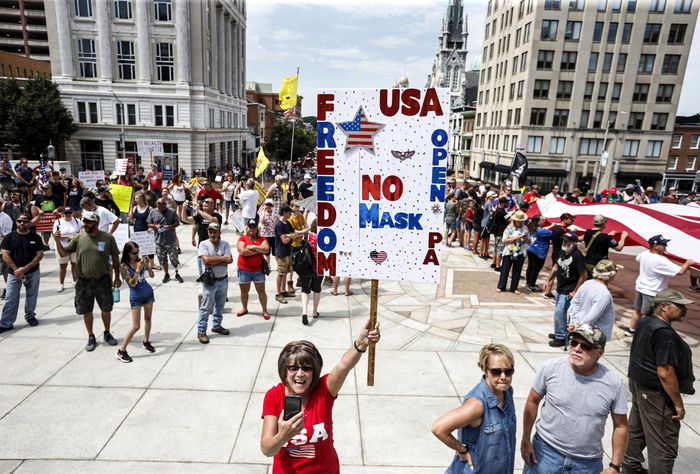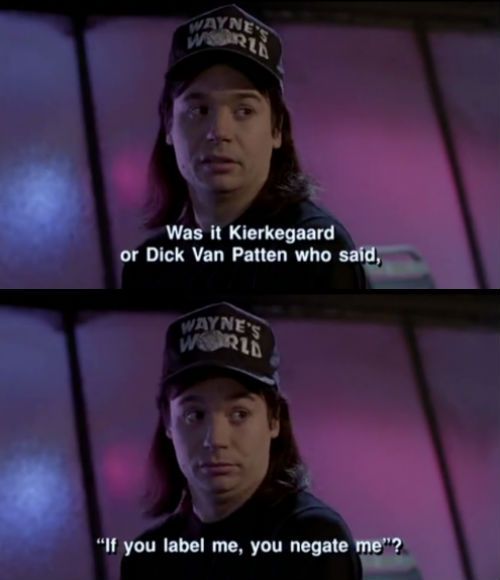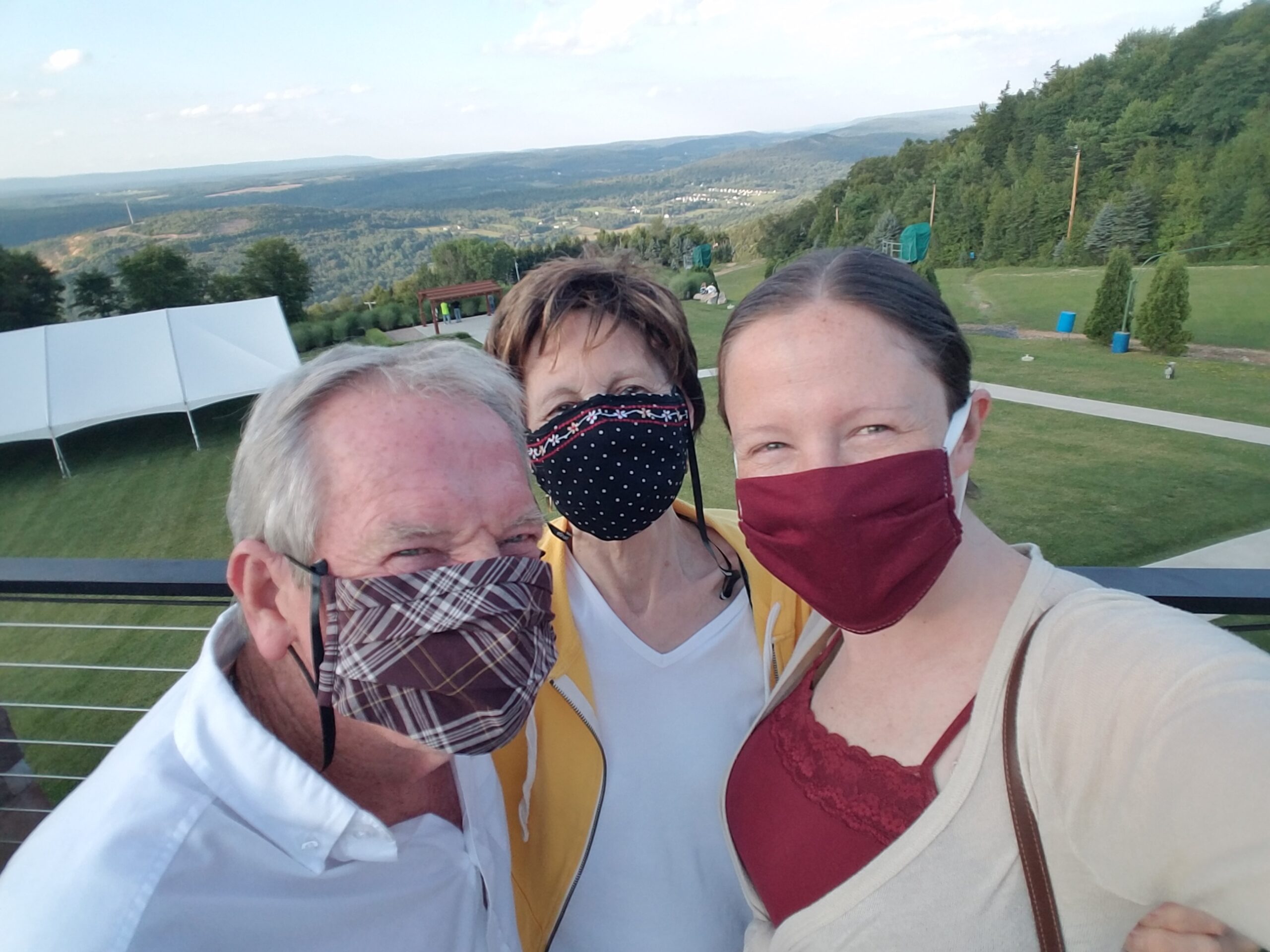Part 4 – Personal Politics
Most families have members who represent a range of political beliefs, and mine is no different. During the past month at my parents’ house, I’ve been exposed to some extreme news spin that I’m not used to from several news commentary programs that I’m not used to. While my parents and I don’t always see eye to eye on everything, we can sometimes engage in informative conversations about the different perspectives and concerns at play on either side of an argument. (I do say “sometimes” – picking my battles is a skill I am still learning.)
I also think it’s important to discuss what I believe with people who disagree. Doing so helps me dissect and issue and understand what I’m missing – whether it’s facts or fears. As with the scientific method, described in part one of this series, I can incorporate new information and modify my approach or perspective. But I’ve also been getting into more of these discussions lately because we are living in interesting times, as the curse goes, and the events of this year related to the global pandemic have very much led to a political crisis of faith for me.
Again, in this series I talk about my job, which is as the executive director of a public health organization. Any opinions in this post represent my own views, not the organization’s.
Party Lines
We know that there’s a pretty significant dividing line for opinions on masks and social distancing, as related to where people identify themselves on the political spectrum. A study from Pew found that partisanship is the most significant factor related to attitudes on mask wearing, more important than race, age, or gender. Specifically, Republicans are more likely than Democrats to go about their daily routines in the time of COVID-19.[1] Obviously, this is not the case for everyone; these numbers represent trends, but a concerning trend nonetheless as I try to protect friends and family who are immunocompromised or have other health complications.
I will reiterate that I try to leave my personal politics off of this blog as much as I can. My desire here is to research and write about things that interest me, and if others can make informed decisions from things they’ve learned here, that’s great. But sometimes, such as now, I see value in sharing my concerns and thought process.

Image credit: [2]
My personal politics fall to the conservative side with respect to economics and to the liberal side with respect to social issues. I am ideologically opposed to large government and centralized power, and I believe there are rarely one-size-fits-all solutions that can be made at the federal level, preferring that decisions that impact local communities be made by local politicians, though local elections. For those reasons, I have identified as a Libertarian since I was old enough to vote.
However, I was shocked by a comment I heard from the Libertarian candidate for president, Jo Jorgensen, during an NPR interview in May. In criticizing the actions of the government in shutting down businesses and advising people to stay home, she cited a statistic that 60-80% of people thought it was too soon to open back up, and that we should just trust people to do the right thing. I will note that her position was contingent upon 1) widespread testing availability, so people could know whether or not they were infected before going out, and 2) the concept that if people didn’t feel safe going out, they could simply stay home.[3]
A Limited Perspective
While everything Jo said in the interview was spot-on Libertarian philosophy, I couldn’t believe how tone-deaf her message was. While I agree that widespread testing would in fact be a game-changer in warning people before they leave the house, that is not a fact of our current situation. I would have liked to hear more about Jo’s vision for how we would manage widespread test production and distribution without heavy-handed government intervention, but the interview continued onto a new topic. My other concern about the concept that individuals who don’t feel safe can choose to stay home is that it’s not a viable option for people who have to work.
Many jobs, particularly in the service industry, require in-person work, and many people who work those jobs cannot afford to miss a paycheck – even when they’re sick. Small business owners can often not afford to close (I remember some nail and hair salons coming under fire for refusing to close in the early days of the pandemic). We are seeing people who have to choose between working while sick and/or risking their health and risking the loss of a job and/or a place to live.

Image credit: [4]
Consider, for example, an hourly worker, who rents an apartment and makes minimum wage, who has to ride public transportation to work, and who cannot afford to stay home, even when exibiting COVID-19 symptoms. Consider someone who owns a small business, who relies on sales volume from in-person services, who has to cover rent for the space and possibly even pay their employees, whether or not they’re allowed to be open. “Choosing to stay home” could be an unrealistic option, no matter what someone feels about the danger posed by the virus.
It is a sad truth that minority and low-income families and communities are being hit the hardest by the virus and the related economic impacts. A Brookings report shows that “the mortality rate from the virus is nearly three times higher for Black Americans than for whites” due to issues such as health inequities and higher prevalence of preexisting conditions such as heart disease, asthma, and diabetes. Also, low-wage workers are more likely than those with higher incomes to live in households of at least five people and with someone over the age of 60. Multigenerational households are also nearly twice as common in communities of color than among non-Latino or Hispanic whites. Reports earlier this year showed massive unemployment rates in retail, leisure, and hospitality, with rates soaring for those with less than a high school degree.[5]
The Dangers of Labels
The Libertarian ideals of personal responsibility and accountability are core to my being, but included in that is a sense of individual action and helping where help is needed. I recognize that we are living through an extraordinary situation, and that should warrant an extraordinary response. Struggling with this question of what we should do to help limit the spread of the virus and also support the people who don’t have the luxury of personal transportation or work-from-home flexibility, I was almost equally shocked to hear several guests on a conservative podcast talking about the current necessity for a social safety net (especially affordable healthcare in the time of a global pandemic), support for businesses, and realistic options to support parents through a return to school this fall.[6]
I will note that this podcast in particular is geared toward anti-Trump conservatives, of which there are a growing number in the US, but these guests still identified as conservatives. I felt some comfort and reassurance in the blurring of the lines between party platforms here, and upon reflection that really does not surprise me. I have never been a fan of political parties, and I wish we didn’t have them. I think they’re a form of shorthand that has enabled people not to think but rather be told how they feel about certain issues. And yet, I too see myself falling into the trap of labling myself: if I name myself a Libertarian, I consequently think that I can’t support broad governmental action in a time of crisis or think that I’m a bad Libertarian for wanting a more proactive, health-protective approach from the government.

I felt the same comfort in watching my parents, who are significantly more conservative than I, don masks when leaving the house because they believe it is a simple action that will protect themselves and others. I don’t know how adamant they would have been about the mask issue if they didn’t have their own health concerns, but at this point I am just glad they’re being careful.
I am heading back to Pittsburgh after a wonderful month with my parents, and I don’t know when I will be able to get another COVID-19 test and see them again. The uncertainty around this upcoming separation makes me sad, but I am channeling that emotion into action and education, hoping that by sharing my own perspective and bringing the aspect of humanity into the issue, I can help protect them – and all the parents, and family, and friends, and humans out there.
Stay safe.
Thank you for reading.
[1] https://www.pewresearch.org/politics/2020/06/25/republicans-democrats-move-even-further-apart-in-coronavirus-concerns/
[2] https://www.pennlive.com/news/2020/07/rally-held-at-capitol-to-protest-mask-mandates-gov-wolfs-coronavirus-restrictions.html
[3] https://www.npr.org/2020/05/30/866059206/libertarians-name-2020-candidate-meet-jo-jorgensen
[4] https://www.pinterest.com/pin/174162710559404698/
[5] http://www.brookings.edu/research/reopening-america-low-wage-workers-have-suffered-badly-from-covid-19-so-policymakers-should-focus-on-equity/
[6] https://podcasts.google.com/feed/aHR0cHM6Ly9mZWVkcy5idXp6c3Byb3V0LmNvbS8xMTEyOTI0LnJzcw/episode/QnV6enNwcm91dC00NjY4NDkx?sa=X&ved=0CCMQzsICahcKEwjw3azip8PrAhUAAAAAHQAAAAAQAw
1 Comment
Face Masks and Social Distancing, Part 3 – Transmission and Testing – Radical Moderate · January 14, 2021 at 10:15 pm
[…] Face Masks and Social Distancing, Part 4 – Personal Politics August 30, 2020 […]